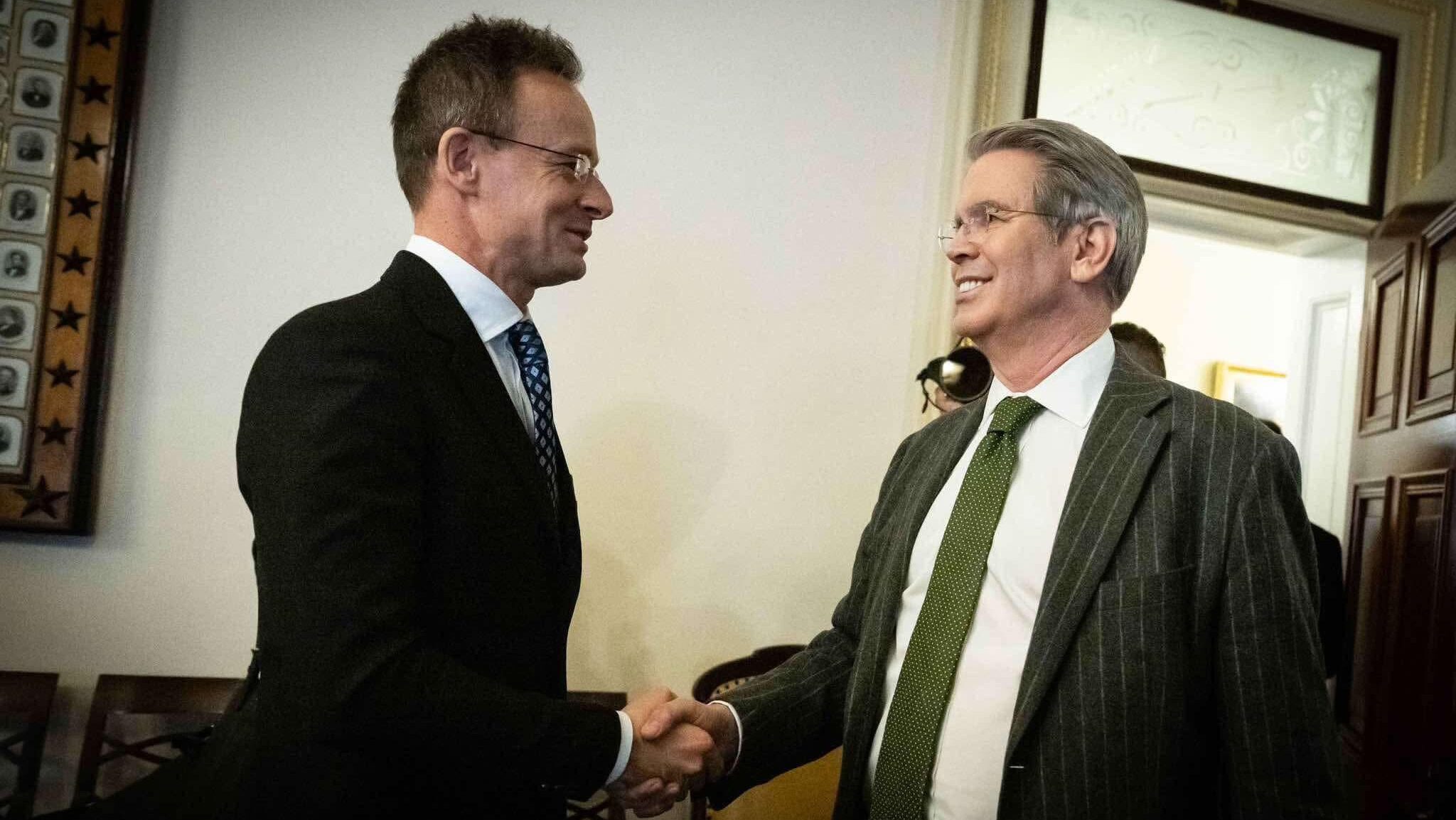Hungarian Minister of Foreign Affairs and Trade Péter Szijjártó met with US Treasury Secretary Scott Bessent in Washington for bilateral talks, focusing on trade relations, reinstating the double taxation agreement between the two countries, and addressing sanctions imposed by the Biden administration on Antal Rogán.
Following the meeting, Szijjártó highlighted that Bessent praised Hungary’s ‘fight against inflation, which was unfortunately necessary due to the challenges caused by sanctions-related inflation’, and commended the country for attracting numerous investments. Bessent also acknowledged the role of American companies in Hungary, noting that ‘more than one hundred thousand Hungarians are employed by American companies.’
According to the Hungarian foreign minister, during the extraordinary meeting of the American–Hungarian Business Council, company representatives expressed satisfaction with their operations in Hungary, with most planning to expand their capacities. He stated:
‘Based on the plans shared with me today by representatives of the financial sector, the healthcare industry, the pharmaceutical industry, and the energy sector, we can expect thousands of new jobs at American companies operating in Hungary in the coming months, which will also contribute to giving the Hungarian economy another boost.’
The ministers also reaffirmed their opposition to the global minimum tax, which had been pushed through the European Union under former US President Joe Biden. Hungary’s rejection of the global minimum tax was one of the main reasons behind Washington’s decision to terminate the double taxation treaty between the United States and Hungary. This issue was also discussed during the talks, with Szijjártó noting that ‘the Treasury Secretary acknowledged our request to resume negotiations on this issue as soon as possible.’ He added: ‘We must understand that the new US presidential administration took office only a few weeks ago and has many significant tasks in the fields of taxation and finance.’
Another issue discussed was the sanctions imposed by the Biden administration on Antal Rogán, Chief of Staff to Hungarian Prime Minister Viktor Orbán, amid corruption allegations. Rogán was placed on the Magnitsky list during the final days of the outgoing Democratic administration. Szijjártó also raised concerns about US sanctions negatively impacting Hungary’s energy security. ‘The future of sanctions is closely linked to when and how the war in Ukraine is concluded. The sooner the war ends, the sooner international political life can return to normal, and we can finally get rid of the various sanctions regimes, as it is obviously not normal for international politics to revolve primarily around sanctions,’ he explained.
Regarding the US–Russia talks on ending the war in Ukraine, which began this week in Saudi Arabia, Szijjártó emphasized that Bessent had confirmed ‘the entire US government, including President Donald Trump, is doing everything possible to end the war in Ukraine as soon as possible. This is the best news for Hungary, as our country has been facing the resulting difficulties directly and severely for three years now.’
Summing up the meeting, Szijjártó described the discussion as ‘very positive’, stating that ‘it is clear that there are many points of agreement between the American and Hungarian governments in terms of economic and tax policy, which provides a good foundation for economic cooperation that can move into a whole new dimension in the coming period.’
Related articles:








